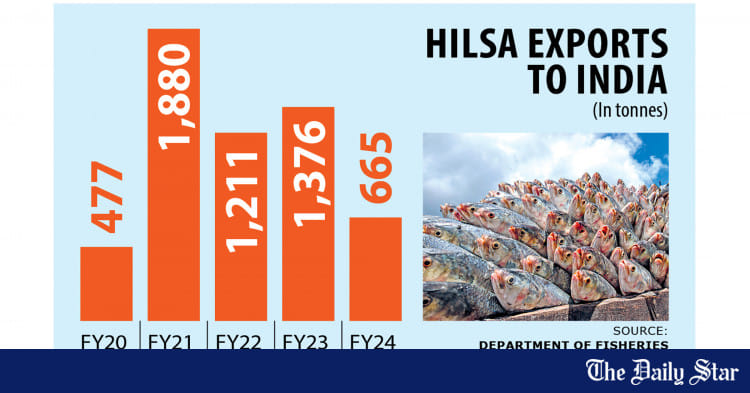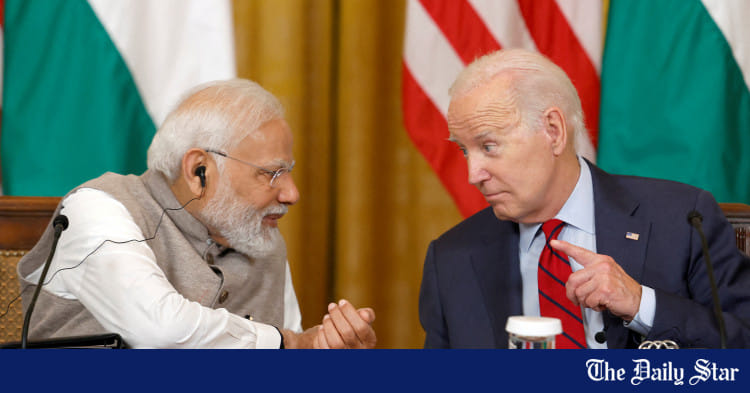Bangladesh not exporting hilsa to India this year
Bangladesh will not export hilsa fish to India on the occasion of Durga Puja in October, according to a top commerce ministry official, discontinuing a long-standing tradition of the country as a "goodwill gesture" to its neighbour.
The decision of the export ban is to ensure adequate hilsa supply in the local market so that the prized fish remains more accessible to people, according to authorities.
This stand by the interim government marks a clear departure from the deposed Sheikh Hasina-led Awami League government.
During the puja festival, Bangladesh, the largest producer of hilsa, usually relaxes the ban on exports of the fish, a sought-after delicacy especially in India's West Bengal.
Hilsa consignments from Dhaka are treated as a gift to Indian people from Bangladesh during the biggest religious fest for Hindu people.
"We have around 50 applications pending for exporting the fish to India," said a senior commerce ministry official. "But we have not received any export permission from the Ministry of Fisheries and Livestock this year."
As per policy, the commerce ministry permits the export of any goods based on the opinion of the ministry concerned.
In the case of hilsa, the fisheries and livestock ministry did not allow for exports this year, the official said, requesting not to be named.
Farida Akhtar, adviser to the fisheries and livestock ministry, in multiple media interviews said the interim government wants to increase hilsa supply in the domestic market.
In fiscal 2023-24, Bangladesh exported 664.86 tonnes of hilsa to India at $7.71 million, according to data from the Department of Fisheries.
In fiscal 2022-23, Bangladesh exported 1,376.42 tonnes of hilsa worth $13.68 million, the data shows.
Demand for the fish is also high in Bangladesh. Despite an uptick in hilsa hauls in recent years, the fish still remains pricier in the local market.
In fiscal 2022-23, Bangladesh produced a total of 571,342 tonnes of hilsa. In fiscal 2021-22, the production of hilsa was 566,593 tonnes, shows fisheries data.
Hilsa is netted from rivers in August and September, when the fish comes into rivers from the Bay of Bengal to lay eggs. Fishers catch up to 600,000 tonnes of the fish annually, with a majority of the haul coming from the sea.
In 2017, hilsa was recognised as a geographical indicator for the country.
Despite being the national fish, buying hilsa still is a luxury for many in the marginal class.
In Dhaka, a piece of hilsa weighing one kilogramme (kg) is being sold between Tk 1,400 and Tk 1,600 at retail. Hilsa weighing below one kg is priced between Tk 1,100 and Tk 1,200 per kg at retail.












































